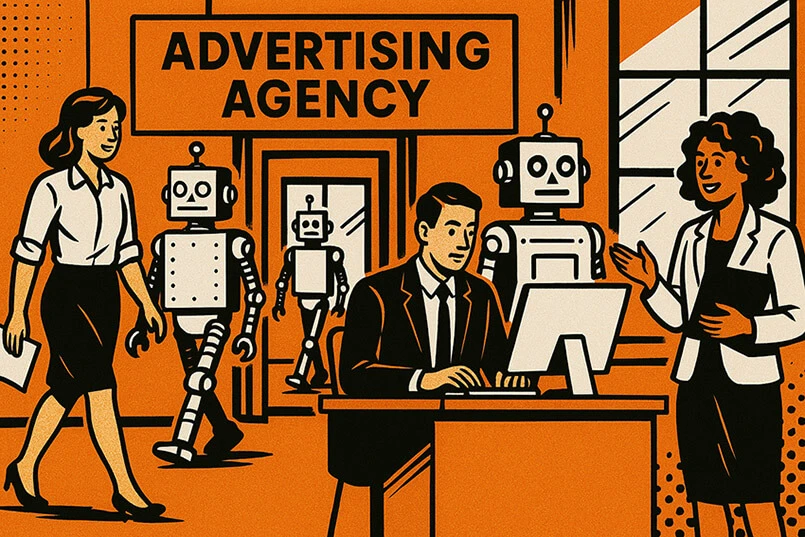A couple of weeks ago I wrote about agency accounting practices that leave clients frustrated and annoyed.
You won’t be surprised to hear that the traffic goes in both directions, and agencies deserve a right of reply.
So herewith, the top 5 client accounting demands that leave your agency feeling unloved and unvalued.
1. Removing legitimate business costs from the overhead calculation
Previous TrinityP3 blog posts have covered how the agency overhead mark up is calculated. Unfortunately many advertisers insist that agency costs and time spent pitching for new business not be included in that calculation.
As one marketing director put it to me: “my agency pitching for new accounts adds absolutely no value to my business and has nothing to do with me, so why should I pay for it?”
A comment like that is the same as me demanding a percentage be taken off the price of the FMCG I’m about to purchase, because I don’t think I should have to pay for new product R&D. In one word: ridiculous.
A regular new business pipeline is essential for agencies surviving, let alone prospering (just as new products or offerings are for any business). Winning new business adds financial stability to an agency, allows investment in new and better people, and puts a spring in everyone’s step; how a client can believe that doesn’t add value to their business is beyond me.
Advertisers move agencies more from global realignments and changes in marketing director than they do because of poor performance – neither are the fault of the agency, but accounts that need to be replaced to maintain the agency as a going concern.
And while clients continue to insist on full creative pitches, agencies spending good time and money on it is a necessary (if evil) cost of doing business and a legitimate overhead expense.
2. Stretching agency payment terms
The lowest common denominator linking all business is that they exist to generate cash, and regular cash flow is the lifeblood of any business.
I find it vexing when those organisations who generally have lots of it – many large, multinational corporations engaging in lots of advertising come to mind – make those who don’t – their smaller agency “partners” – wait 60, 90 sometimes even 120 days for it.
Factor in the 4 months the campaign was a work in progress, and that’s 8 months the agency is left bankrolling the client’s advertising, while the client’s treasury department reaps the rewards of the short term money market.
It’s even worse for the media agencies (operating on gross margins of 3 or 4%) that must, by hook or by crook, pay the media companies in 45 days. Who would want to invest in an agency on those terms? You’d make a better return leaving your “agency start up fund” in the bank or under the mattress!
Worse still, advertisers offer to shorten payment terms as a negotiation tactic to get fees down. That little stamp freelance Mac operators sometimes put on their invoices: “please pay me, so I can pay him, so he can pay her, so she can pay you” may seem a touch quaint, but perhaps sums it up quite nicely.
3. Increasing the baseline hours number when calculating agency head hour rates
Agencies try and use as small a number as possible (because it increases rates) and clients try and use a number as big as possible (which reduces rates).
It is (or should be) a purely mathematical and logical exercise. Darren Woolley has blogged on this one before, but let me give you a refresher. Assume a 37.5 hour work week (which is around the mark in most developed countries). 52 weeks in a year equals 1,950 hours. Subtract 4 weeks annual leave (150 hrs), 10 days of public holidays (75 hours) and 10 days personal/sick leave and you get 1,650 hours, maximum, that an employee is available to do actual, productive work.
Factor in having to do some internal admin., training, or managing staff, and working on pro-bono and new business opportunities.
I don’t see how some client procurement departments (or their consultants) can insist upon as much as 1,850 or even 2,000 hours as the base that agency staff should be working on clients! What they’re effectively asking is that their agency don’t take holidays (or work through them), don’t get sick, and that all administration, staff development and new business is done on the employees own (already over) time.
It’s not sustainable, the biggest cause of agency staff turnover, and in the long run not conducive to the marketer getting great service or great work.
4. Not getting the agency their Purchase Order in a timely manner (or not factoring the delay into the deadline)
The client Procurement or Finance department writes into the contract that the agency cannot commence work until they are in possession of a purchase order (or worse, they can’t submit an invoice without one).
And yet that same procurement or finance department creates a system and process bottleneck that means the agency is waiting a week or more.
So what happens?
The agency waits, and now doesn’t have enough time to properly meet the deadline and the quality of the work suffers.
Or, the agency does the right thing by the marketer (especially if it’s a tactical execution where the window of opportunity is small) and starts on the brief straight away, leaving itself exposed to breaching the contract, and not getting paid.
That’s no way to treat any supplier, much less one usually told they are a respected strategic partner.
If the client can’t fulfil their end of the bargain, there must be an alternative process written into the contract that gives the agency protection and allows the client to meet their timeline. Or brief the agency earlier.
5. Procuring agency services in the same way as stationery
Working for many years in agencies and with TrinityP3, I have met and dealt with dozens of client procurement people.
The majority are well credentialled professionals who understand the distinctions between making different purchases. Unfortunately the minority (as is usually the case) give everyone else a bad name.
Agency services are different to most things procurement departments contract for because advertising can directly influence income, and should not be considered an “overhead” item on a company P&L.
As with anything, cheaper is not always better (although you can always find a cheaper option). It is that minority of procurement professionals who focus on cost and not value, and so give agencies a hard time.
I don’t know what the difference is in quality between a box of pencils that cost $6 and a box that costs $3, but I’m sure it won’t make a difference to meeting the goals and objectives of the organisation if the cheaper pencils aren’t fully up to the job and break more often.
But purchase the cheaper advertising option just because it is cheaper, only to discover that the experience and thinking you get as a result is not up to the job, will have a negative impact on the sales and profitability of the organisation, and is not money well spent.
Or worse, forcing the agency that can deliver the results you want to price match the cheaper option only de-values their offering and ultimately, the quality and value you receive.
Yes of course there are budgets to consider, but the wonderful thing about market economies is that most things are negotiable and an equitable common ground can be achieved.
Choose your agency first on the results they can deliver, and then negotiate a market competitive price. It may not be the cheapest, and indeed may be the most expensive option, but the most important consideration is getting the people, thinking, ideas and service that can deliver the marketing objectives of your organisation – quality and value – at a price that reflects that value.
These are just the first 5 – I am sure you can think of many more. Leave a comment to share your agency/client accounting gripes now.




